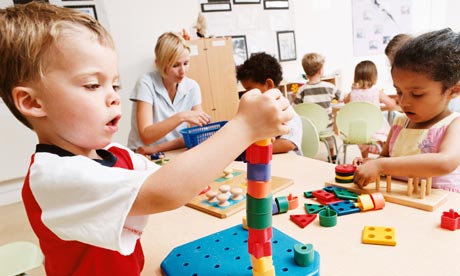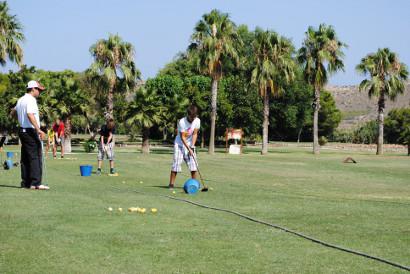Why People Of All Ages Learn by Playing Games
 (Updated 8/1/2017) Play is a great vehicle for learning. In fact, we learn our first language while playing games, naming things, repeating, imitating sounds, etc.
(Updated 8/1/2017) Play is a great vehicle for learning. In fact, we learn our first language while playing games, naming things, repeating, imitating sounds, etc.
Playing can transform any difficult learning task into something fun – if packaged in the right way.
Games, can be that package. With their specific rules and controlled processes, games provide an excellent platform for play and learning.
Childhood Memories of Playing Games
When I was 5 years old, I spent two weeks in the Netherlands with my family. Highlights of this visit were days spent at the magnificent North Sea beach at Zandvoort near Haarlem.
 My father often told the story that I had quickly found a group of kids to play with in the sand, and within hours I was fully engaged, playing and speaking Dutch.
My father often told the story that I had quickly found a group of kids to play with in the sand, and within hours I was fully engaged, playing and speaking Dutch.
(My mom was originally from the Netherlands, so I had heard Dutch at home, but had never needed to use it myself. This was my first chance to talk with Dutch kids.)
Playing at the beach: building a sand city, digging ditches around it, getting the water from the ocean, decorating our streets and buildings, all of this required skills of cooperation, strategy, and negotiation.
Apparently, within hours I had learned the basics for negotiating this kind of “team work” in Dutch, playfully. I wasn't aware of “learning Dutch” at that time, but I do remember feeling good about being able to communicate that way.
I wonder sometimes, if that early experience set me on my path to become a linguist and language teacher.
Adults Playing Games
Sports games, such as tennis, golf, baseball, etc. - which many of us love to play - are complex and complicated activities.
 They are fun to do, especially because they challenge a player to focus, to figure out the rules, and to play at his or her highest skill level.
They are fun to do, especially because they challenge a player to focus, to figure out the rules, and to play at his or her highest skill level.
Usually, the more we play these games, the more comfortable we become with the intrinsic skill activities - we get better while playing.
Besides, there's a wonderful social aspect to playing such games. We are part of a team, we learn from each other, and of course, we compete with each other.
Connections
In an article entitled “Play,” Kevin Carroll (author of Rules of the Red Rubber Ball and speaker on sports and play for social change) is quoted as saying:
 “[sports and play activities] we remember from childhood … were also exercises in resourcefulness, planning, strategy, design, decision making, creativity and risk taking.” (See also Kevin Caroll's Ted Talk: Play is necessary.)
“[sports and play activities] we remember from childhood … were also exercises in resourcefulness, planning, strategy, design, decision making, creativity and risk taking.” (See also Kevin Caroll's Ted Talk: Play is necessary.)
In the same article, founder of the National Institute for Play, Dr. Stuart Brown states: “Humans are designed by biology to play throughout their entire life cycle.”
He describes our state of mind during play as “... not cognitive, linear thinking. And it's not sleep and dreams. It's kind of a bridge between.”
In the last couple of years “Games for Learning” have become popular, and such sites have mushroomed. Games for language learning are no exception. See also: Are Games Effective for Language Learning?
Multi-sensory games for language learning - using sound, colors, text, images, movement, etc. put the learner on the “bridge” between “linear thinking” and and the rich world of “imagination and memory.” Good games make language learning fun, and yes, effective!
